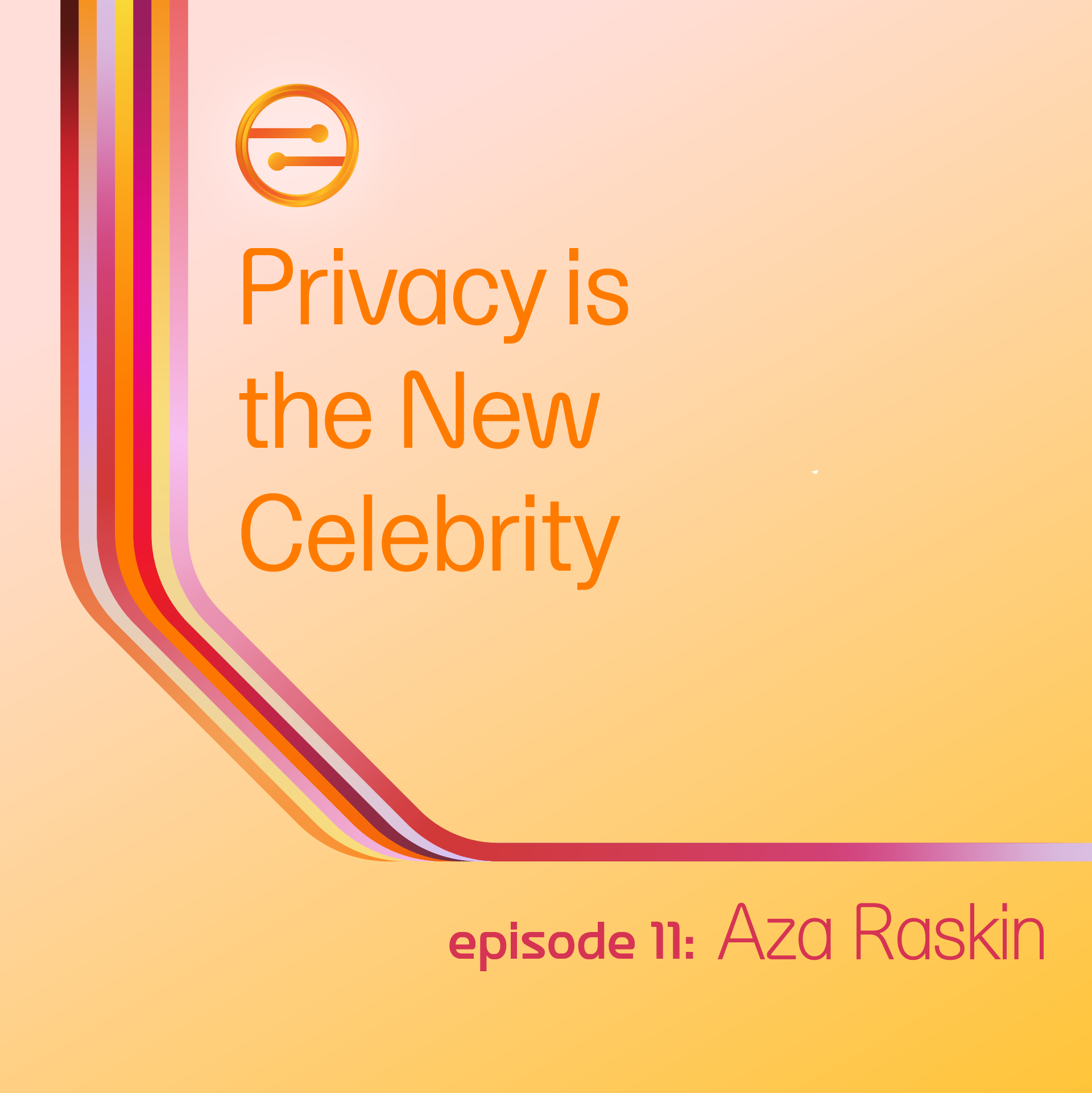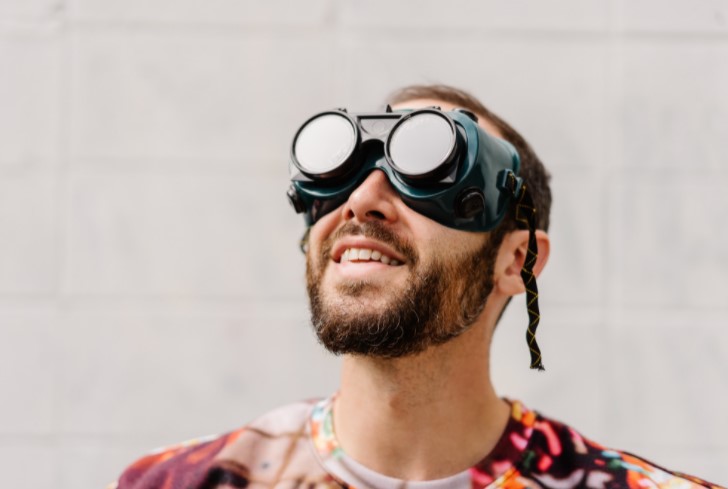Privacy is the New Celebrity EP 11: Aza Raskin

In this episode, Lucy Kind interviews Aza Raskin, co-founder of the Center for Humane Technology and co-founder and executive director of the Earth Species Project. Aza grew up in Silicon Valley (his father started the Macintosh project at Apple) and began his career at Mozilla where he was the inventor of the infinite scroll.

Aza expands on his vision for cultivating a world where human attention is not just decommodified but valued as our most treasured resource. He explains humane technology by comparing it with origami. “It’s sort of like that beautiful unit origami, where it’s finding all the ways to make beautiful shapes that you can stack together to make functional, incredible, cohesive communities, societies.”
Aza discusses how privacy is not the only problematic piece of technology. “Just focusing on privacy will not be enough”, he says. Facebook’s 2018 change to the ranking algorithm serves as a great example. The algorithm stopped optimizing for engagement and shifted to prioritizing “meaningful social interaction”. It began prioritizing content based on how much it caused the people in your social graph to react, especially with emotions like anger. “The more viral it is, the more virus it is likely to be”, says Aza.
Political parties noticed the change in the algorithm immediately. White papers that used to get some engagement now received none, and organizations felt forced to mostly post negative content such as attack ads to get engagement. Aza explains, “It’s often said that culture is upstream of politics, but what we’re seeing here is that Facebook and these information technology companies are not just upstream of culture and politics, but control both”.
Lucy noted that Aza is credited for coming up with the “infinite scroll” which is arguably a piece of addictive technology that is harmful to users. When asked if he regrets creating this technology, Aza explains that it was part of his waking up process. He believes that if he had not invented infinite scroll, someone else would have and would rather go back and package a better kind of philosophy along with these technologies.
Lucy asks Aza a question that we like to ask all of our guests — when did he first realize privacy was important to him? He grew up believing deeply in the values of the open web and notes that it was very early in his career when began to acknowledge the importance of privacy in technology. He discusses that one of the issues with getting people to care about privacy is that it is so abstract. It’s hard to make people care about privacy until their own is violated in some way.
You can check out Lucy’s entire conversation with Aza Raskin on Apple Podcasts, Spotify, or Buzzsprout. While you’re listening, don’t forget to subscribe to Privacy is the New Celebrity Podcast on your favorite streaming service.
If you enjoyed this blog, subscribe here for privacy commentary, product updates and news about upcoming events.